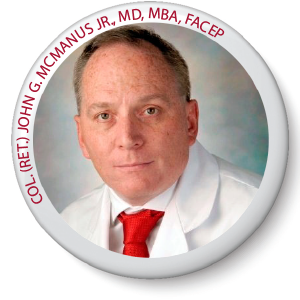
Each October at ACEP’s annual Council meeting, the ACEP Council elects new leaders for the College. The Council, which represents all 53 chapters, 37 sections of membership, the Association of Academic Chairs in Emergency Medicine, the Council of Emergency Medicine Residency Directors (CORD), the Emergency Medicine Residents’ Association (EMRA), and the Society for Academic Emergency Medicine, will elect the College’s President-Elect, four members to the ACEP Board of Directors, and the Council Vice Speaker. This month, we’ll meet the Council officer candidates.
Explore This Issue
ACEP Now: Vol 36 – No 10 – October 2017Platform Statements
The Council officer candidates responded to this question:
Discuss the similarities and differences in the skill sets of the Council officers and Board of Directors. Describe your skills, background, knowledge, or unique abilities that will make you an effective Speaker or Vice Speaker.
Council Speaker
The following member is a candidate for ACEP Council Speaker.
 Col. (ret.) John G. McManus Jr., MD, MBA, FACEP (Government Services)
Col. (ret.) John G. McManus Jr., MD, MBA, FACEP (Government Services)
Current Professional Positions: EMS fellowship director and professor of emergency medicine, Georgia Regents University, Augusta
Internships and Residency: transitional internship, Eisenhower Army Medical Center, Augusta, Georgia; chief resident, emergency medicine, Fort Lewis, Washington
Medical Degree: MD, Medical College of Georgia (1992)
Response
After serving for more than 15 years on the Council and the last two years as the Vice Speaker, I have come to recognize that most of the Council possess leadership skill sets. The Board of Directors and Council officers are very collaborative in nature and possess the obvious characteristics of leaders. As elections occur, often the Council will place certain leadership traits higher than others to balance out opinion and promote diversity for society decision making.
My own leadership background is diverse and unique in many ways. I’ve spent several years working in both medicine and the military for many great leaders, and much to my surprise, the leaders at most of my jobs did not fit commonly espoused theories of leadership. Although several of my previous leaders and mentors were charismatic, possessed a commanding presence, were visionary, and were educated at elite schools, the most successful of these were servant leaders. Over the past two decades, as I have moved up in the leadership ranks, I have relied on being a servant leader as one of my most prized qualities to build consensus, motivate colleagues and peers, and mentor future medical providers off and on the battlefield. A servant leader is one who leads by example and is people-centric. This leader values service to others and believes they have a duty of stewardship. I tend to be a humble but passionate operator in my organizations who believes every member should be treated with equal respect and their opinions valued.
Pages: 1 2 3 4 | Single Page



No Responses to “2017 ACEP Elections Preview: Meet the ACEP Council Officer Candidates”